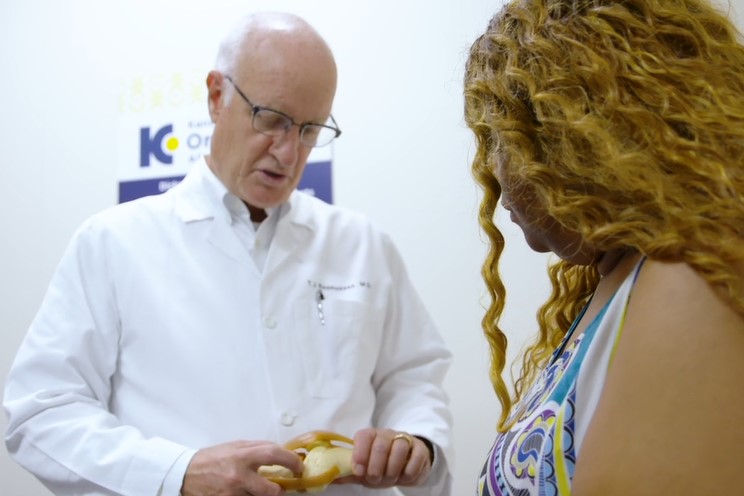As an orthopedic surgeon who specializes in shoulder surgery and other shoulder pain treatment options, I understand the concerns patients have when dealing with a type of broken shoulder known as a proximal humerus fracture. The proximal humerus is the top of the arm bone, and blood supply is unique in that area of the body, so shoulder surgery is not always the best option for every patient. Fortunately, there are a few treatment options following a shoulder fracture.
In the following video, I answer some of the questions most commonly asked by the patients I treat for broken shoulders. I encourage you to watch it now for more information on broken shoulder treatment, what to consider about shoulder surgery and what to expect during recovery.
For patients seeking more information on shoulder injuries or conditions, my colleagues have created additional videos.
- Shoulder Replacement Surgery: What is Reverse Total Shoulder Arthroplasty?
- Rotator Cuff Tears: Is Shoulder Surgery the Only Treatment Option?
- What Makes Someone a Good Candidate for Total Shoulder Replacement Surgery?
- What are the treatment options for shoulder conditions at Dickson-Diveley Orthopaedics?

About the Author: Stanley Bowling, M.D. is a board-certified orthopedic surgeon specializing in conditions of the foot and ankle, shoulder, and knee, as well as trauma and fractures. Dr. Bowling answers common patient questions about proximal humerus fractures (broken shoulder) below.
* * *
The medical information contained in the Dickson-Diveley Orthopaedics website is provided to increase your knowledge and understanding of orthopedic conditions. This information should not be interpreted as recommendations for a specific medical or surgical treatment plan. As each patient may have specific symptoms or associated problems, the treatment regimen for a specific patient may not be the proper treatment for another.
Gaining knowledge and understanding of a particular problem or condition is the first step in any medical treatment plan. Information presented here is intended to be helpful for those individuals experiencing a broken shoulder, upper extremity disorder, or other related problems. However, this information is not intended to replace the advice of your physician. You are encouraged to consult with your primary care physician to discuss any course of treatment presented or suggested.


